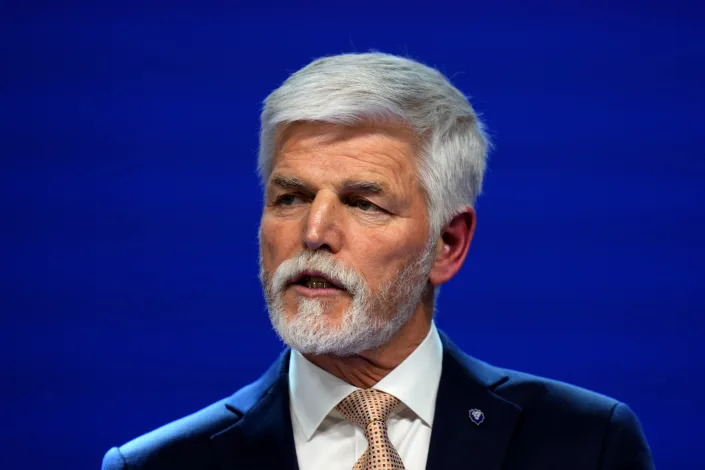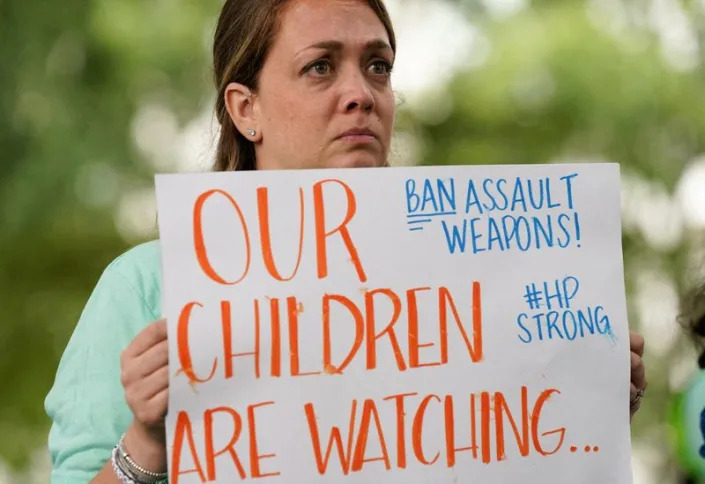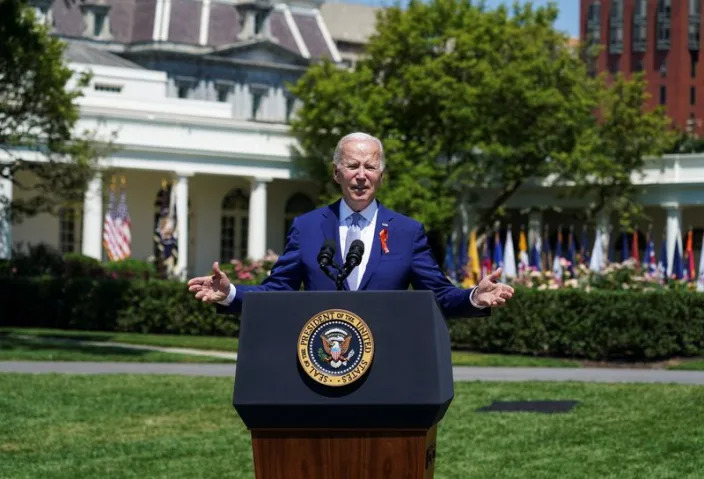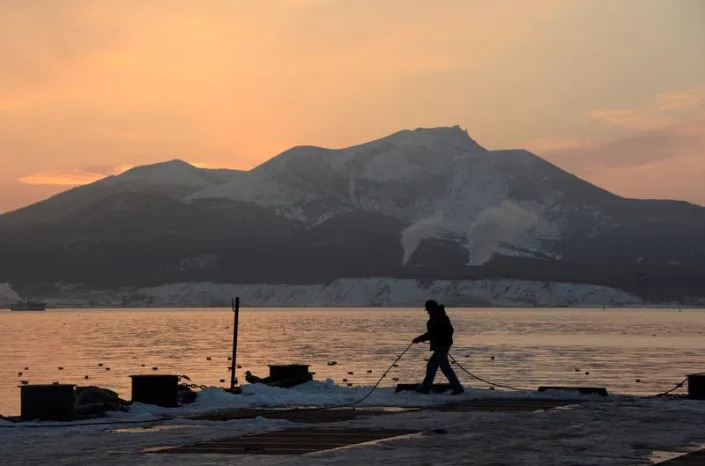

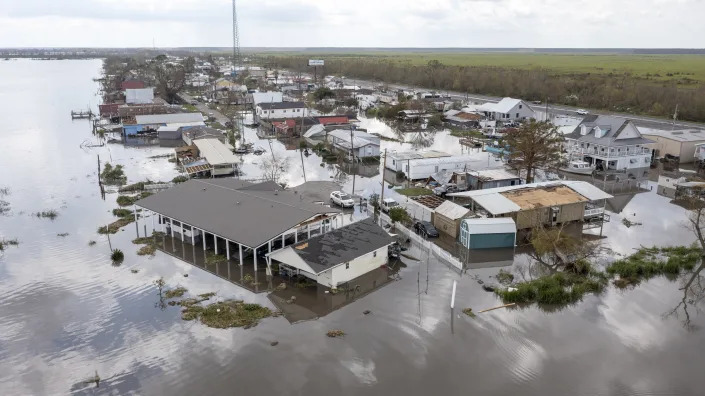
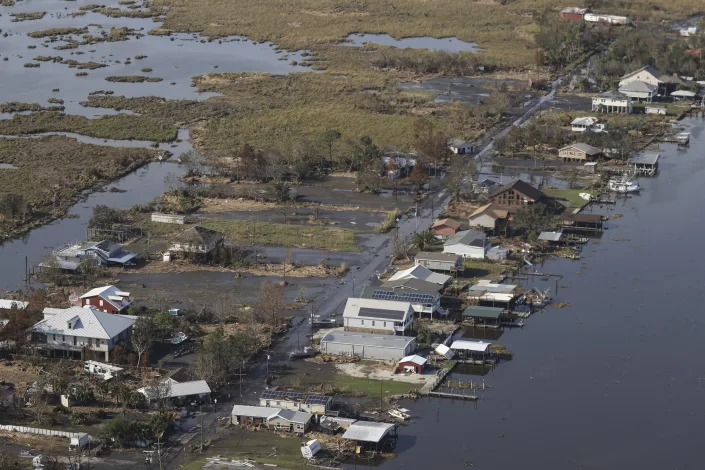
- A view of flood damaged buildings are seen as President Joe Biden (not pictured) inspects the damage from Hurricane Ida on the Marine One helicopter during an aerial tour of communities in Laffite, Grand Isle, Port Fourchon and Lafourche Parish, Louisiana, on Sept. 3, 2021. Ten Filipino men who worked for a major offshore oil industry employer claim in a federal lawsuit in Feburary 2022 that they were treated like prisoners at a company bunkhouse — and that two of them were abandoned there when Hurricane Ida struck the Louisiana Gulf Coast in 2021.
KEVIN McGILL
Fri, January 27, 2023
NEW ORLEANS (AP) — As Hurricane Ida struck the Louisiana Gulf Coast in August 2021, Renato Decena and Rosel Hernandez watched the storm punch a hole in the roof of the bunkhouse where they were sheltered — abandoned, they allege, by their offshore oil industry employer as the hurricane bore down.
“I could not think of anything to do but to pray and to pray,” Decena, who court records indicate worked for the company for about four years, told The Associated Press.
Decena and Hernandez are two of 10 Filipino workers who are suing their former employer, major offshore oil industry company Grand Isle Shipyard, alleging they were virtual prisoners at their bunkhouse and that the company abandoned Decena, Hernandez and some of their co-workers there during the storm. The 10 plaintiffs also allege they were illegally underpaid and that those among them who tested positive for COVID-19 were quarantined on vulnerable moored supply boats or other vessels, sometimes without adequate food or medicine.
Grand Isle Shipyard not only denies the claims but has struck back with a counterclaim accusing the workers — whose lawsuit invokes federal human trafficking and fair housing laws — of defamation. The judge in the case dismissed the defamation allegations in a Jan. 20 order but said the company could pursue them again once the workers' lawsuit is concluded.
The competing court filings at the U.S. District Court in New Orleans lay out starkly different views of life for Filipinos who work under federally granted visas at the Louisiana-based company.
Overseas employment of Filipino citizens has been a key part of the Philippines' economy since the government of Ferdinand Marcos in the 1970s, according to nonpartisan research and analysis organization the Migration Policy Institute.
The Philippines' worldwide remittances — money sent back to family and friends from Filipino workers employed abroad — totaled more than $36 billion in 2021, according to data from the World Bank.
“As part of its labor export policy, the Philippines has developed a significant government infrastructure to regulate labor migration and the recruitment industry, and to manage relations with labor-receiving countries and provide some protections for workers at destination,” Michelle Mittelstadt, spokesperson for MPI, said in an email. “That said, foreign workers can be vulnerable to abusive conditions at destination, at the mercy of employers and recruiters.”
Decena and Hernandez said the better-paying jobs in the United States help them provide for their families.
“We have dreams for our family and children,” Hernandez said in an email. “We want them to have a better future.”
They and the other plaintiffs in the lawsuit allege they suffered abusive conditions while employed and housed by the company, and that discrimination played a role.
Aside from Decena's and Hernandez's claims that they were abandoned at the bunkhouse during Ida, they also allege poor care and cramped quarters for those among them who were quarantined on moored tugboats or supply vessels when they tested positive for COVID-19.
“Not one medicine, not one tablet, not one vitamin. Nobody gave these things to us. We were on our own,” Hernandez told the AP.
A 15-year employee of the company, Hernandez said there was little food when he arrived at the quarantine vessel.
“I drank juice and hot water with salt to cure my coughing,” he said.
The company denied such allegations in its counterclaim filed Oct. 10, 2022.
“The houseboats and vessels that workers were quarantined on have fully stocked kitchens, bedrooms, and bathrooms," the company filing said. "Breakfast, lunch and dinner for workers was delivered by Defendants to all such quarantine sites."
“GIS’ on-site clinic physician routinely visited those in quarantine, dispensing medicine and monitoring symptoms,” the filing said.
The lawsuit alleges that the company used threats of deportation to keep the workers from leaving the bunkhouse.
“All workers are free to come and go as often as they wish,” the company said in its counterclaim.
Early on, the argument had been over whether the workers' claims should be heard in U.S. federal court or whether the contracts the men signed meant the claims had to be settled by arbitration in the Philippines.
The workers' lawsuit says the Philippines' agency that administers arbitration won't enforce legal remedies called for in U.S. law, and that the arbitration process is corrupt.
“We want a fairer treatment,” Hernandez said in the AP interview. “We know that the system here is better.”
In a Sept. 23, 2022, ruling in New Orleans, U.S. District Judge Carl Barbier said the workers’ disputes over wages — they claim the company did not pay promised rates and denied them overtime for periods when they were effectively on call for offshore work — would be subject to arbitration in the Philippines. Barbier allowed the U.S. court case to proceed involving the allegations that the men were confined to the bunkhouse and treated unfairly, claims invoking U.S. human trafficking and fair housing law.
The workers' lawsuit seeks class-action status — meaning, if Barbier agrees, it would cover roughly 90 other Filipino men who worked for Grand Isle Shipyard. A victory would mean unspecified damages paid to the workers for the alleged human trafficking and fair housing allegations.
Grand Isle Shipyard is seeking damages, too, accusing the workers of making false allegations they claim were “maliciously fabricated” and could carry criminal implications that would damage the company.
In its counterclaim, Grand Isle Shipyard said it discovered that two of the plaintiffs in the lawsuit — who like Hernandez and Decena were said to be among numerous workers stranded in the bunkhouse when Ida hit — were actually in the Philippines at the time of the storm. Lawyers for the workers have since filed an amended version of the lawsuit, keeping the two as plaintiffs over living conditions and wages but removing the claim that they were with Hernandez, Decena and other workers in the bunkhouse at the time of the hurricane.
Grand Isle Shipyard has not granted telephoned requests for interviews or comment.
The workers are represented by attorney Daniel Werner in Georgia and lawyers with the Tulane University Law Clinic.
___
Associated Press reporter Jim Gomez in Manila contributed to this report.


